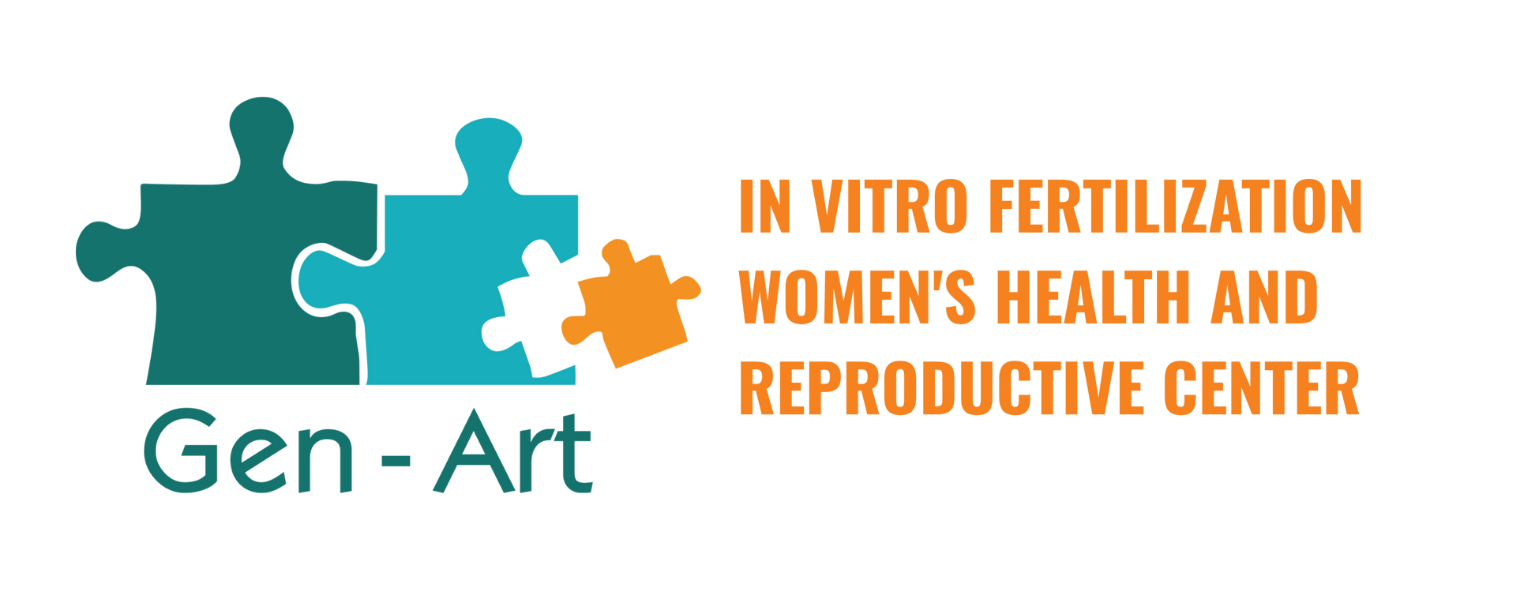Infertility treatment cannot be done without GENETIC...
If you want to have children but are unable to conceive, specialists will recommend one of the medical procedures known as assisted reproductive technologies. The most commonly used of these is IVF (in vitro fertilization).
One of the following six possibilities will await you in your IVF treatment:
-
You get pregnant > you give birth to a healthy baby
-
You become pregnant > you have a miscarriage
-
You become pregnant > you give birth to a baby with a genetic disorder
-
You become pregnant > medical termination is performed due to a genetically diseased baby
-
You cannot get pregnant > you will have to try again
-
You will be left with the cancellation/termination of your IVF treatment.
As you can see above, only if the first possibility occurs, everything will be fine for you. In all other cases, you MUST UNDERGO GENETIC TESTING.
-
IVF Babies
No significant difference in health has been found between babies born through IVF and those born through natural conception. Risks associated with diseases that develop in later life or genetic predispositions with certain life-threatening characteristics, such as cancer, diabetes, hypertension, and certain autoimmune diseases (polygenic risk factors), apply to both groups. On the other hand, genetic screenings known as Genome-Wide Association Studies (GWAS) have the potential to offer an advantage or benefit for IVF babies.
-
Miscarriage (Pregnancy Loss – Abortion)
If your pregnancy ends in miscarriage, tests must be performed to determine the underlying cause, and measures must be taken accordingly. Some of these tests are biochemical tests, while a significant portion are genetic tests. IT IS NOT THE RIGHT APPROACH TO REPEAT YOUR IVF TREATMENT WITHOUT HAVING THE NECESSARY TESTS PERFORMED.
-
Genetik Hastalıklı Bebek Doğumu
Genetik problemle doğan bebekler “nadir hastalık” grubunun neredeyse tamamına yakınını kapsamaktadır. Bunların da büyük çoğunluğu eş akrabalığından kaynaklanan genetik hastalıklar ve yanı sıra dominant veya taze mutasyon ile oluşan genetik bozukluklar ya da kromozomal hastalıklardır. Farklı sınıflandırmalar yapmak gerekiyor olmakla birlikte daha anlaşılır olması bakımından otizm spektrumu çocuklar, zihinsel veya motor bozukluk gösteren çocuklar, gelişme gerilikleri, morfolojik anormallikler, kas hastalıkları metabolik hastalıklar, sinir sistemi ile ilgili bozukluklar veya epilepsi gibi durumlar mutlak suretle genetik araştırma yapılması gereken kondisyonlardır. Bu gibi durumlarla karşılaşıldığında ya da çiftin yakın akrabaların da bu gibi hastalıklar gözlenmiş ise yeni bir tüp bebek denemesinden önce mutlaka GENETİK TETKİKLERİN YAPILMASI GEREKİR.
-
Medical Termination Due to Genetic Disease in a Baby
If a life-threatening problem is detected in the baby during prenatal (pre-birth) monitoring, medical abortion (termination of pregnancy) is recommended. In this case, the following two things are very important:
-
All findings and data related to the baby (ultrasound results, etc.) should be documented and stored.
-
Bebeğe ait dokudan kromozom analizi yapılmalı ve mutlaka DNA izole edilerek saklanmalı ilk fırsatta elektif testler yapılmalıdır.
These two parameters are crucial for achieving a healthy baby in subsequent attempts!
-
Repeated IVF (In Vitro Fertilization) Failures
Unfortunately, a significant proportion of couples undergoing IVF treatment fail on their first attempt, and a significant proportion of these couples also fail on their second and subsequent attempts. It is now necessary to classify these couples as having “recurrent IVF failure” and to perform the necessary genetic, immunological, and other tests on them.
It is important to note that if pregnancy has not occurred despite three embryo transfers of morphologically high-quality or aneuploidy-tested embryos, REPEATING THE SAME IVF TREATMENT IS NOT THE RIGHT APPROACH. Such a situation must be attributed to a male factor, a female factor, or a uterine/endometrial factor, a factor related to the medication protocol, a factor related to the response to medication, and the genomic-level mutations and variations we have outlined below; p53, VEGF-A, LIF, COX2 gene variations, angiogenesis-related gene variations and expression changes, circadian rhythm-related gene variations and expression changes, proteasome, complement and coagulation pathway genes, factors related to cell adhesion molecule regulatory genes, inflammatory response regulatory genes, cell cycle regulatory genes, and variations and expression changes in renin-angiotensin modulator genes may play a role.
-
Cancellation or Interruption of In Vitro Fertilization Treatment
Sometimes a woman's response to ovulation treatment may be very low, producing no or very few eggs, in which case your doctor may terminate your treatment. Sometimes your egg cysts may develop, but no eggs may be retrieved during the egg retrieval procedure, or all of your eggs may be immature. In such cases, the underlying cause is often genetic, and it is essential to investigate these factors before proceeding with further attempts.
GENETIC TESTS PERFORMED ON EMBRYOS:
Genetic testing of embryos is called PGT (Preimplantation Genetic Testing). We do this for three main reasons:
-
To increase the success rate of IVF (we call this PGT-A)
-
To screen for genetic disorders (we call this PGT-M)
-
Selecting healthy babies in carriers of chromosomal translocations (we call this PGT-SR)
We generally use Next Generation Sequencing (NGS)-based technologies for the first (PGT-A) and third (PGT-SR) purposes. These methods provide extremely reliable results and increase success rates in indicated patients. NGS technology provides not only high reliability but also high resolution, as the embryo's DNA is checked from many regions and with multiple readings.
The PGT-M method is used for genetic diseases known as single-gene disorders, which are more common in cases of consanguinity. This group of diseases includes SMA, cystic fibrosis, thalassemia, FMF, muscular dystrophies, metabolic diseases, and phenylketonuria. Another important application of the PGT-M method is in IVF procedures aimed at creating HLA-matched siblings. As is well known, in certain bone marrow-related diseases such as Mediterranean anemia and leukemia, the only treatment option is bone marrow stem cell transplantation. For families with children suffering from such diseases, the most significant problem is the difficulty of finding a tissue-compatible donor. Our IVF and PGT-M procedures for HLA-matched siblings are a highly effective method for these families. To date, many families have benefited from this method at our clinic and have been able to have healthy siblings who have helped their sick children recover.
EMBRYO BIOPSY AND NON-INVASIVE PGT:
One of the most frequently asked questions is whether embryo biopsy causes damage to the embryo. Culturing the embryo until the fifth day and performing the biopsy procedure at the blastocyst stage has virtually eliminated the problem of embryonic damage. At the blastocyst stage, the embryo is divided into two separate parts: one is the “inner cell mass” that will form the baby, and the other is the “trophoblast cells” that will form the placenta. The biopsy procedure is performed on these trophoblast cells, i.e., on the other side where the baby is not present. This minimizes embryo damage. However, despite all this, the theoretical risk of embryo damage cannot be ignored; but years of experience have shown that embryos have a strong potential for resistance and self-renewal. On the other hand, scientific and technical advances are continuing at a rapid pace. One of the most promising developments in this regard is the NIPGT (Non-Invasive PGT) procedure. This procedure involves collecting and testing free DNA released into the culture medium by the embryo through different mechanisms. In summary, it is the performance of PGT using free DNA in the environment without any intervention or biopsy on the embryo. This method will be optimized in the very near future and find widespread application.
GENETIC TESTS PERFORMED BEFORE IVF PROCEDURES:
There are certain genetic tests that are mandatory before marriage. We call these tests “Pre-Marital Screening Tests.” In our country, the mandatory tests are only aimed at determining whether the spouses are carriers of thalassemia (Mediterranean anemia) and SMA (spinal muscular atrophy). If the couple are carriers, it is possible to take measures to eliminate the risk of having an affected child. The most reliable and widely used method is the PGT-M test. Thus, these couples can have healthy children through in vitro fertilization (IVF).
These screening tests are particularly important in countries with high rates of consanguineous marriage. In our country, the rate of consanguineous marriage is around 22%, meaning that one in every five couples is related. Consanguineous marriage not only increases the risk of babies being born with SMA and thalassemia, but also causes hundreds of other genetic diseases to emerge.
When we look around us, which of the couples who give birth to babies with genetic disorders are sick? Almost all of them are healthy people and spouses. So they are carriers of these diseases without knowing it. PRE-MARITAL CARRIER SCREENING TESTS, THESE ARE VERY VALUABLE TESTS THAT REVEAL THE RISK OF THIS TYPE OF SILENT CARRIER STATUS AND ENABLE US TO TAKE PRECAUTIONS. At our clinic, we use a comprehensive and reliable carrier screening panel that checks for 146 genes and disease carrier status. In some cases, we also use the WES (Whole Exome Sequencing) test for this purpose, which allows us to screen all genes.
GENETIC TESTS WE OFFER AT OUR CLINIC:
-
Tests for Diagnosing Genetic Diseases:
These tests enable diagnosis in cases where there are undiagnosed sick children in the families of the couple or among themselves. This is very important, because we can only perform PGT-M and give the couple healthy children if we have the results of genetic diagnosis tests.
-
Tests for Screening Genetic Diseases
According to genomic data obtained to date, each individual in society can be a carrier for 5 to 20 diseases. This means that almost all of us are silent carriers of one or more diseases. If spouses are related, they may be carriers of the same disease, which can lead to them having children with the disease.
-
Tests for Detecting Hereditary Cancer Risk
Genetic mutations detected in certain hereditary forms of cancer, such as breast cancer, ovarian cancer, prostate cancer, and colon cancer, can be screened out in embryos, thereby eliminating the risk of hereditary cancer in subsequent generations.
-
Tests to Determine the Cause of Pregnancy Losses (Abortion-Miscarriage)
In order to prevent miscarriage in women who have had miscarriages, it is first necessary to determine the cause of the miscarriage. For example, if a couple who have had repeated early pregnancy losses have normal chromosome test results, the possibility of chromosomal translocation carriage should be ruled out by performing a subtelomeric FISH test. All possible causes can sometimes be identified through different genetic tests, sometimes through genetic-based immunological tests, or sometimes through biochemical tests. Advanced genetic tests for these purposes are performed at our clinic.
-
Microarray testing and chromosome analysis
Sometimes, chromosome analysis alone is not sufficient to solve the problem. In such cases, we need a more detailed and higher resolution test called microarray testing. We also perform this test at our clinic.
-
PGT (Preimplantation Genetic Testing) Applications
-
Chromosome screening tests in embryos (PGT-A, aneuploidy screening)
-
Screening for genetic disorders in embryos (PGT-M)
-
Translocation carrier screening in embryos (PGT-SR)
-
PGT-M Application for HLA-Compatible Sibling Selection
In diseases such as thalassemia (Mediterranean anemia) and leukemia, which affect the bone marrow, the only treatment option is bone marrow/stem cell transplantation from a tissue-compatible donor. For families with children suffering from such diseases, our HLA-compatible sibling IVF and PGT-M applications have provided healing to many families.



